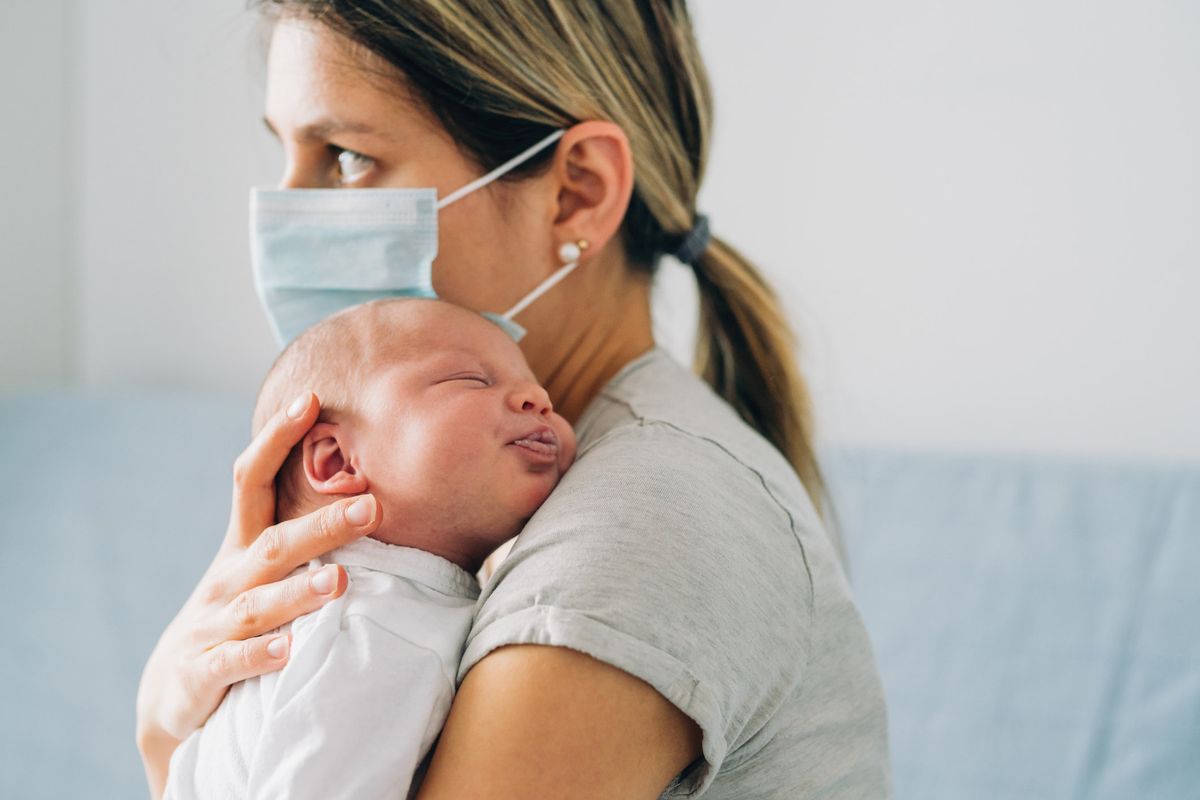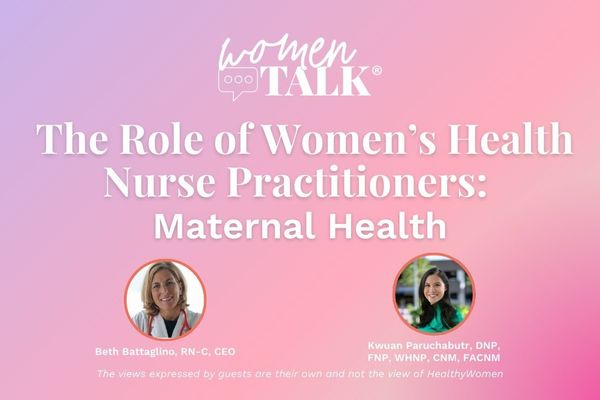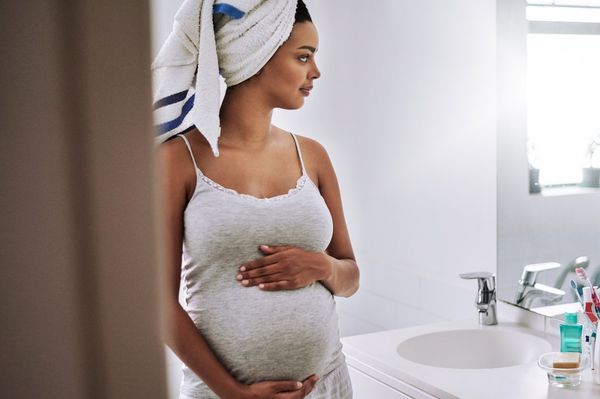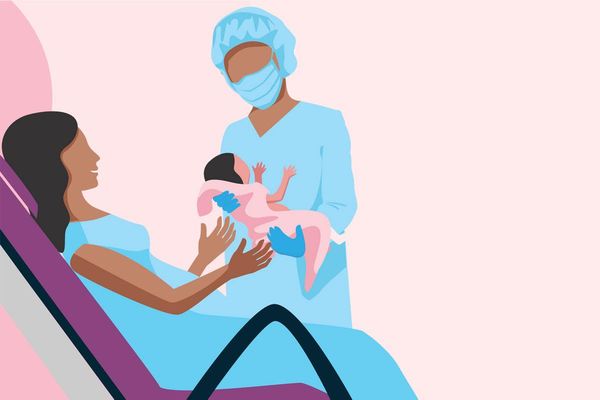By Jennifer C. Ablow, University of Oregon and Elinor Sullivan, Oregon Health & Science University
Pregnancy is stressful, to say the least, but COVID-19 brings new challenges to parents of newborns. The Centers for Disease Control and Prevention has identified pregnant women as a vulnerable population. If infected, they are more likely to be hospitalized and require ventilation and their risk of preterm birth goes up.
Economists predict that the U.S. may have at least 500,000 fewer births because of the pandemic. Deciding not to become pregnant during a pandemic is understandable, particularly in the U.S., as it is one of five countries worldwide and the only country classified as high-income by the World Bank, that does not mandate paid maternity leave for non-federally employed workers.
As scholars who study prenatal and postnatal stress, maternal nutrition and the brain development of children, we can tell you the pandemic has dramatically changed the pregnancy experience.
We are part of an international study to understand how women who are expecting to or have given birth are affected by stress related to the pandemic. We are finding that mothers are worried about catching the virus, transmitting it to their newborn and keeping their child safe during infancy. And this stress is on top of an already high stress load for pregnant women and new mothers.
The risks
COVID-19-positive pregnancies have been linked to abnormalities in the placenta. Those abnormalities potentially impact oxygen and nutrient delivery to the fetus. The long-term influence of the virus on the developing child is not yet known.
It seems unlikely, however, that a developing fetus can get COVID-19 from its infected mother. COVID-19 needs a receptor molecule to cause infection. A recent study suggests the placenta contains very low levels of the molecules needed to create the receptor. This finding may explain why the virus is rarely found in newborns with COVID-19-positive mothers.
There are other concerns, however, including the effects of stress on the mother-to-be.
Humans are confronted with stress on a daily basis. The physiological response to stress is well known. It leads to the release of hormones into the bloodstream, most notably cortisol. Even in pregnancy, some stress is necessary. During a typical pregnancy, maternal cortisol increases by two to four times. This is normal and critical to the development of organ systems in the fetus, like the lungs, liver and central nervous system.
However, people respond differently to identical stressful situations for a host of reasons. Young age, racial and ethnic disparities, poor education, poor preparation for pregnancy and a history of trauma are a few factors that can exacerbate the effects of stress. To make stress tolerable, adequate social support, access to supportive resources and economic stability are necessary.
Otherwise, continuous exposure to significant stress leads to unrelenting activation of the stress response. Chronic stress, or toxic stress, in pregnant women has been linked to complications like gestational diabetes, impaired fetal development, low birth weight, neurodevelopmental problems and preclampsia (high blood pressure).
A lack of control and information makes stress worse. Things such as not knowing how long the stress will last and how intense the stress will be add to a pregnant woman's and new mother's stress levels.
The birth itself
The hospital experience for pregnant couples is now very different. Water baths are out. So is walking around the hospital. Most facilities allow only one support person present at the birth. If either parent tests positive for COVID-19 during hospital admission, they fear separation from the baby. These things often add even more stress.
When the family comes home, there is still risk. Infants could catch the disease from an infected parent. While children with COVID-19 generally don't get as sick as adults, infants are an exception. Because of their immature respiratory and immune systems, they are at increased risk of severe illness compared to older children.
Faced with this possibility, parents of infants are advised to socially isolate. This may offer some advantages, but isolation also decreases access to childcare and other kinds of social support right at the time they need it the most.
The COPE study
As part of the COVID-19 and Perinatal Experience study, we are following women who are expecting to or have given birth during the pandemic to understand how they are affected by stress related to the pandemic. An initial review of data from over 500 Oregon women reveals they are significantly stressed; their levels of reported depression and anxiety are disturbing.
Approximately 75% say the pandemic is having an extreme impact on their daily life. The stress, they tell us, is from social isolation, loneliness, changes in hospital procedures, concerns about postnatal care and a lack of social support because they need to quarantine.
The good news: prenatal stress during the pandemic can be reduced. A robust social support network is critical; friends and family are needed as new parents become exhausted and vulnerable to postpartum depression. Although COVID-19 makes in-person support difficult, if not impossible, technology – like Facetime and Zoom – can be a connector. Online group prenatal care is another possibility. So are relaxation and mindfulness techniques. A healthy diet, adequate sleep and exercise also help.
Why these women need more help than ever
Community health workers with pregnant clients can reduce stress by making sure basic needs are met. No longer is that only food, housing and insurance. Needs once considered extras, like internet service, are now essential.
Unfortunately - and leaving the internet aside - federal programs to help access food, housing, and insurance vary widely from one state to another. Without a unified federal mandate, social health disparities grow even more.
The Family and Medical Leave Act offers 12 weeks of job-protected leave. But it's unpaid and it applies only if you work at a company with more than 50 employees. Many families, and especially single mothers, decline this offer. They need the income. Parental leave is linked to healthier babies; they have better long-term outcomes as they develop. An investment in parental leave would, in the long run, save money.
Restructuring national policies to meet basic needs can help reduce the challenges faced by this under-served group. Without that support, the stress from COVID-19 could leave a long-lasting, multi-generational impact on pregnant couples and their children.![]()
Jennifer C. Ablow, Associate Professor of Psychology, University of Oregon and Elinor Sullivan, Associate Professor of Psychiatry, Oregon Health & Science University
This article is republished from The Conversation under a Creative Commons license. Read the original article.







